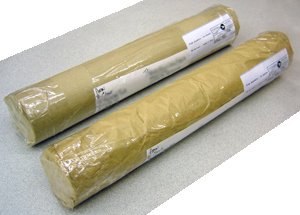I'm far from the world of the text, yet I'm creating my own broken text. Everything spins in my head, fragments of text here, partial images there, authors listed on rolled parchment. Perhaps the texts I've read are smattered over my mindscape like collages: rearranged, cut, reoriented, given different colours, rotated, fragments repeated that have no meaning other than to me. In my private mythology, the place where I make meaning of the heiroglyphic world, where thoughts are scrawled across pages, edited and formatted, lines drifting by that I barely see anymore. I have lost my library. The books I didn't try to memorize on the shelves where they could be found and browsed through. What I underlined then I would still underline today. When did I discover what struck me as most important and relevant could be discerned in a speed read of a few hours and it was the same as what emerged from reading slowly over a week? This discovery enabled me to read vastly and widely through a number of years. The text no longer frightened me with its weight of meaning and the tradition out of which it arose. I could read sources, influences, backgrounds, other authors of the same time period for context. One book opened another. What's important to me remains important to me and didn't change with speed of reading, nor time.
I'm still trying to understand the fundamental grammar of my life. The basic building blocks. What foundation I rest on. In the exegesis of myself, I tear my texts apart until I find bare letters, signs floating over the ground of my being.
Our artifacts are all that will remain of us.
Bare words dragged across the whiteness of pages. A few images here and there. A tune. A tiny bundle of photographs. Some memoraphilia. Memory for a generation or two.
I have been without my small library for half a year and I feel adrift and bereft. How do I re-collect those books, their memories?
Francis Yates.
The Art of Memory, on Giordiano Bruno in the Renaissance. Vast tracts, whole books, entire epic poems memorized. A guide to oral memory. How did they do it? By creating a structure to keep books, chapters, paragraphs and lines in. A vast palace of the mind; the inner library. Organized, polished, filed; the cadences of words creating a natural punctuation. And so I must remember my library, for I miss it.
One packed bookcase of art books, from Prehistoric Art to the Present. A shelf of fat, white Abrams art books. Colour images. Hundreds of small colour edition books on individual artists, from the late Medieval period to the 20th Century. Numerous critics, from Ruskin to Greenburg to feminism to the new media.
Two packed bookcases of English Literature. I put Greek literature in here too. Homer, Ovid, Aeschelus. And Babylonian. Gilgamesh; Inanna. And then the periods: Medieval, Renaissance, followed by centuries, 17th, 18th, 19th, 20th. Chaucer, Marlowe, Shakespeare, Donne, Pope, Blake, the Romantics, the Pre-Raphaelites, Morris, Woolf, Proust, Joyce... Modern poetry had its own section, and so did novels, which were filed alphabetically.
One bookcase of Psychology, Sociology, Mythology. This is where Jung & Freud went, and Schzaz, and Neumann and Campbell, a couple of first year Introduction to Psychology texts, not much interest in the field. Along with gentle music that I used for the relaxation sequences of my yoga classes. And underneath were numerous books of photographs.
Then a packed bookcase on Science and Philosophy. I stopped collecting Science books a decade or two back. Philosophy had all the classics, the Greek Philosophers, Plato, Aristotle, jumping to Bacon and then on through to perhaps Existentialism, and into our era. Those massive collection books, like Zimmer's Philosophies of India, and another one on Chinese Philosphy. All read, all duly underlined, notes written in some book somewhere or other. People like Augustine and Aquinas were in religion.
Religion a packed bookcase, everything from so-called primitive religions to Christianity to Shaminism and Witchcraft and New Age. My small collection of the Medieval Christian mystics there.
Women's writing took up 2 bookcases. All of it 20th Century. Novels, poetry, essays, feminist theory. And my own area of speciality, maternal theory, packed a smaller bookcase, along with many drafts towards a book spanning almost 2 decades.
Next to my bed the books I was currently reading, and ones most relevant to whatever my current project was. In Vancouver I remember Alex Grey's paintings on birth, which I wanted to study to understand, and still do.
The chunks of the thought of whole lifetimes of thinkers, writers, artists, books organized in simple categories of knowledge, bits of lines, notations in my head, dim memories of book covers. I see my bookcases packed with books that were all read like disappearing visions of another lifetime.
And I wonder if I will ever be re-united with them, these old friends of mine, companions of many years, in the days to come. And I wonder what will happen to me if I never again see them, touch them, open and read the chapter headings, my underlined sections, run my fingers over their spines as I dust them.
Will only fragments of text remain, floating in my mind like resurrected debris torn from its context, its pages, the beautiful books I collected for so many years?
What is to happen now?





